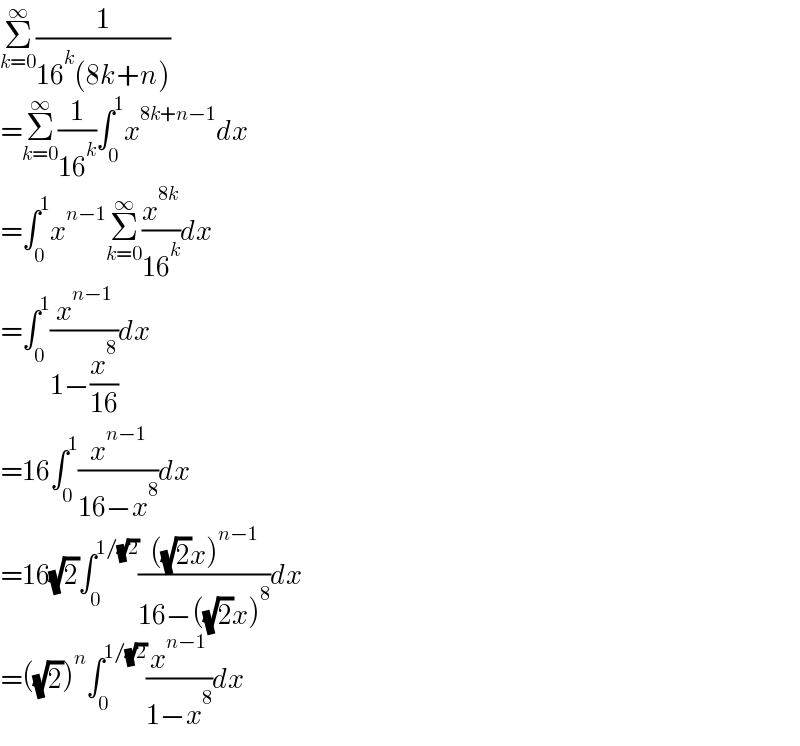Question Number 141640 by Willson last updated on 21/May/21

Answered by qaz last updated on 22/May/21

$$\underset{{k}=\mathrm{0}} {\overset{\infty} {\sum}}\frac{\mathrm{1}}{\mathrm{16}^{{k}} \left(\mathrm{8}{k}+{n}\right)} \\ $$$$=\underset{{k}=\mathrm{0}} {\overset{\infty} {\sum}}\frac{\mathrm{1}}{\mathrm{16}^{{k}} }\int_{\mathrm{0}} ^{\mathrm{1}} {x}^{\mathrm{8}{k}+{n}−\mathrm{1}} {dx} \\ $$$$=\int_{\mathrm{0}} ^{\mathrm{1}} {x}^{{n}−\mathrm{1}} \underset{{k}=\mathrm{0}} {\overset{\infty} {\sum}}\frac{{x}^{\mathrm{8}{k}} }{\mathrm{16}^{{k}} }{dx} \\ $$$$=\int_{\mathrm{0}} ^{\mathrm{1}} \frac{{x}^{{n}−\mathrm{1}} }{\mathrm{1}−\frac{{x}^{\mathrm{8}} }{\mathrm{16}}}{dx} \\ $$$$=\mathrm{16}\int_{\mathrm{0}} ^{\mathrm{1}} \frac{{x}^{{n}−\mathrm{1}} }{\mathrm{16}−{x}^{\mathrm{8}} }{dx} \\ $$$$=\mathrm{16}\sqrt{\mathrm{2}}\int_{\mathrm{0}} ^{\mathrm{1}/\sqrt{\mathrm{2}}} \frac{\left(\sqrt{\mathrm{2}}{x}\right)^{{n}−\mathrm{1}} }{\mathrm{16}−\left(\sqrt{\mathrm{2}}{x}\right)^{\mathrm{8}} }{dx} \\ $$$$=\left(\sqrt{\mathrm{2}}\right)^{{n}} \int_{\mathrm{0}} ^{\mathrm{1}/\sqrt{\mathrm{2}}} \frac{{x}^{{n}−\mathrm{1}} }{\mathrm{1}−{x}^{\mathrm{8}} }{dx} \\ $$
